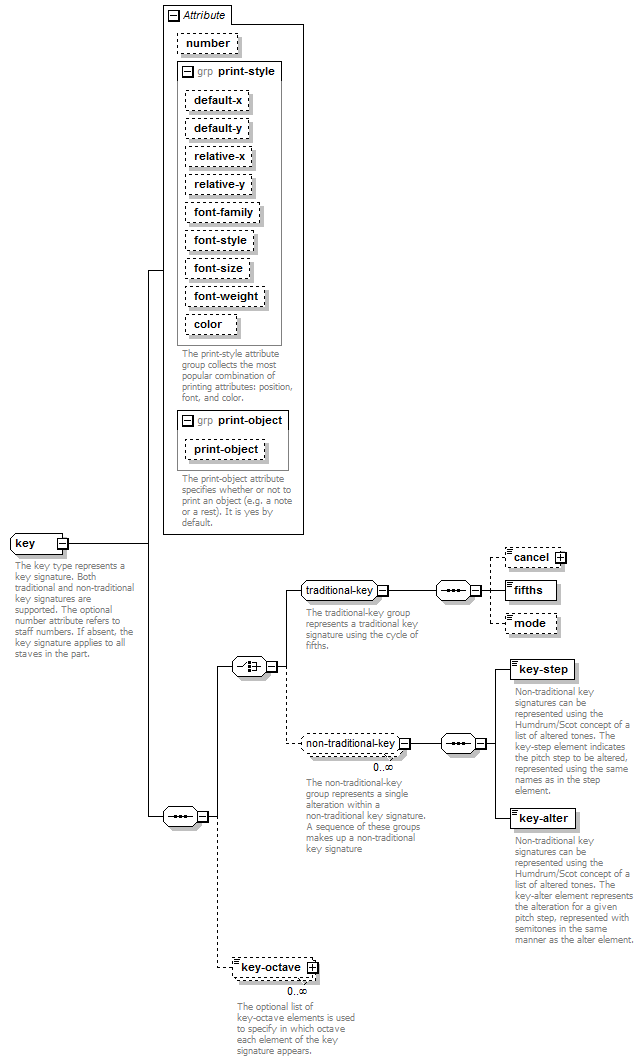<xs:complexType name="key">
<xs:annotation>
<xs:documentation>The key type represents a key signature. Both traditional and non-traditional key signatures are supported. The optional number attribute refers to staff numbers. If absent, the key signature applies to all staves in the part.</xs:documentation>
</xs:annotation>
<xs:sequence>
<xs:choice>
<xs:group ref="traditional-key"/>
<xs:group ref="non-traditional-key" minOccurs="0" maxOccurs="unbounded"/>
</xs:choice>
<xs:element name="key-octave" type="key-octave" minOccurs="0" maxOccurs="unbounded">
<xs:annotation>
<xs:documentation>The optional list of key-octave elements is used to specify in which octave each element of the key signature appears.</xs:documentation>
</xs:annotation>
</xs:element>
</xs:sequence>
<xs:attribute name="number" type="staff-number"/>
<xs:attributeGroup ref="print-style"/>
<xs:attributeGroup ref="print-object"/>
</xs:complexType> |
